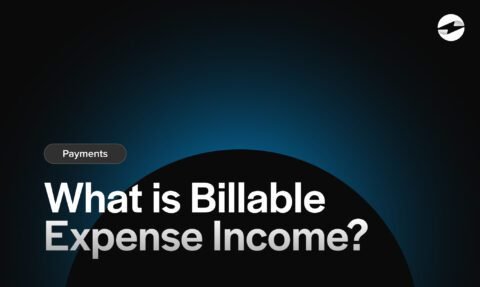What Is a Karen? Understanding the Meme, Its Origins, and Its Cultural Impact
In recent years, the term "Karen" has become a ubiquitous part of internet slang and popular culture. You might have seen it used in social media posts, news articles, or even casual conversation. But what exactly does "Karen" mean? In this comprehensive guide, we explore the origins of the term, the behavior and characteristics it is meant to describe, the controversies it has sparked, and its broader cultural impact.
This post answers a wide range of common questions, including:
- What is a Karen?
- What does Karen mean?
- What does Karen stand for?
- How did the term originate and evolve?
- What behaviors are typically associated with a "Karen"?
- How has the term impacted social discussions about entitlement and privilege?
- What are the controversies surrounding the term?
1. Introduction
The term "Karen" is widely used as a pejorative label for a certain stereotype of behavior. Generally, it refers to a person—often depicted as a middle‐aged, entitled white woman—who displays a sense of entitlement, demands to speak to the manager, and may exhibit condescending or dismissive behavior toward others. While many use the term humorously or satirically, it has also generated debate about stereotypes, social justice, and gendered language.
In this guide, we aim to provide a balanced overview of the term "Karen": its origins, its evolving meaning, and its place in contemporary culture.
2. Historical Origins and Evolution
The use of common first names as shorthand for certain social stereotypes is not new. Over the past decade, "Karen" has emerged as a meme on social media platforms to characterize behavior that is perceived as overly entitled, demanding, or out of touch. Although its precise origins are debated, several factors contributed to its rise:
- Internet Memes: Social media platforms such as Twitter, Reddit, and Instagram played a pivotal role in popularizing the term. Memes featuring “Karen” often depict scenarios where someone demands special treatment or complains excessively.
- Viral Videos: Several viral videos captured incidents of individuals exhibiting stereotypical “Karen” behavior—such as calling managers over trivial issues or acting in a condescending manner toward service staff.
- Cultural and Social Context: The term has also been used as a commentary on perceived entitlement and privilege in modern society.
Over time, "Karen" has evolved from a simple meme to a cultural shorthand. However, its evolution has not been without controversy.
3. Definition and Common Characteristics
When people ask, "What is a Karen?" they are often referring to a set of behaviors and attitudes rather than a specific person. Although the stereotype can vary from one context to another, some common characteristics include:
- Entitlement: A belief that one deserves special treatment or privileges without regard for fairness.
- Demanding Behavior: Frequently insisting on speaking to the manager or demanding exceptions to rules.
- Lack of Empathy: Dismissing the feelings or concerns of others, often in service-related contexts.
- Overt Self-Importance: Exhibiting behavior that suggests one’s needs and opinions are paramount.
It is important to note that these characteristics are a caricature—an exaggerated stereotype—and not every person named Karen (or who behaves in a certain way) necessarily fits this description.
4. The Role of Social Media in Popularizing the Term
Social media has played a crucial role in the propagation of the "Karen" meme. Platforms like Twitter, TikTok, and Facebook enabled users to share stories and videos highlighting instances of behavior labeled as "Karen." These posts quickly went viral, further cementing the term in popular culture.
Memes and hashtags helped spread the term globally, often accompanied by humorous illustrations and videos. While some users found the meme amusing and cathartic, others criticized it for oversimplifying complex social dynamics and reinforcing negative stereotypes.
5. Karen in Popular Culture and Media
The "Karen" meme has transcended social media to appear in news reports, television segments, and even in advertising campaigns. The media often uses the term to illustrate examples of customer entitlement or to critique problematic behavior.
Documentaries and news features have debated whether the term is a harmless meme or a harmful stereotype. As its usage grows, so does the discussion around its implications in society.
6. Controversies and Criticisms
Although many use the term "Karen" humorously, it has also sparked significant controversy:
- Gender and Racial Stereotypes: Critics argue that the term is often applied in a gendered and racially charged manner, targeting predominantly white women while ignoring similar behaviors in other groups.
- Oversimplification: Some claim that reducing a set of behaviors to a single name oversimplifies complex social issues and undermines legitimate grievances.
- Misuse in Public Discourse: There are concerns that the term can be weaponized to dismiss or delegitimize individuals’ concerns, even when those concerns may be valid.
Despite these criticisms, many users defend the meme as a humorous way to call out entitlement and poor customer service. It is important to use the term thoughtfully and be aware of its context.
7. Psychological and Social Perspectives
From a psychological standpoint, the "Karen" meme reflects societal frustrations with behaviors perceived as narcissistic, entitled, or dismissive. Social psychologists note that the meme can serve as a way for individuals to vent about negative customer service experiences or to highlight power imbalances in social interactions.
At the same time, scholars caution that overgeneralization can lead to unfair labeling and may distract from deeper systemic issues. The debate continues as to whether the meme is an effective social commentary or merely a reductive stereotype.
8. Real-World Examples and Anecdotes
Numerous real-life incidents have been labeled as "Karen" moments. These examples typically involve scenarios such as:
- Customers demanding to speak to a manager over minor issues.
- Individuals publicly shaming service staff on social media.
- Situations where someone appears to insist on preferential treatment without regard for fairness.
Many of these incidents have gone viral online, sparking widespread discussion and debate. While some find humor in these stories, others use them to discuss broader issues of privilege and entitlement.
9. Karen and the Media: Analysis of News and Social Commentary
Media coverage of "Karen" incidents has been both celebratory and critical. News outlets have highlighted viral videos of entitled behavior while also cautioning against the overuse of the term to stereotype an entire demographic.
Social commentary often addresses the broader cultural and economic factors that may contribute to such behavior, such as stress, economic insecurity, or a perceived loss of control in customer interactions.
10. How the Term Has Evolved Over Time
Since its popularization, the term "Karen" has evolved in meaning. Initially used humorously to denote bad customer service experiences, it has come to embody a broader stereotype associated with entitlement, privilege, and even racism.
Today, "Karen" is used in various contexts—both as a meme and as a shorthand in social commentary. Some have attempted to reclaim the term or criticize its overuse. Its evolution reflects changing societal norms and the dynamic nature of internet culture.
11. Academic Perspectives on the "Karen" Phenomenon
Scholars from sociology, psychology, and cultural studies have examined the "Karen" phenomenon as a case study in modern slang and social behavior. Research has focused on:
- The sociological implications of using first names to label behavior.
- How memes like "Karen" reflect broader societal attitudes toward privilege and entitlement.
- The potential for such labels to both challenge and reinforce stereotypes.
These academic discussions help provide a nuanced view of the term and its impact on public discourse.
12. Criticisms and Counterarguments
Although many people find the "Karen" meme humorous, it has also attracted criticism:
- Stereotyping: Critics argue that the term unfairly stereotypes middle-aged white women and can be used to dismiss legitimate concerns.
- Oversimplification: Some suggest that reducing a complex set of behaviors to one label can be reductive and counterproductive.
- Misuse: The term can sometimes be used as a catch-all insult rather than a thoughtful critique of behavior.
It is important to consider these criticisms when using the term and to be mindful of context and intent.
13. The Impact on Society and Workplace Dynamics
The "Karen" meme has extended beyond social media into everyday life, influencing conversations in workplaces, customer service, and public policy debates. Some companies have even addressed “Karen behavior” in training sessions to improve customer relations.
While the meme can be a humorous shorthand, its impact on workplace dynamics and social interactions is complex. It serves as a reminder to approach conflicts with empathy and understanding, rather than resorting to stereotypes.
14. How to Respond to a "Karen" Situation
Whether you encounter a so‐called “Karen” in customer service or in everyday life, here are some suggestions for handling such situations constructively:
- Stay Calm: Maintain a calm and professional demeanor.
- Listen Actively: Sometimes, the issue may be a misunderstanding; active listening can help de-escalate the situation.
- Seek Resolution: Focus on finding a solution rather than labeling the behavior.
- Know When to Escalate: If the behavior becomes abusive or discriminatory, it may be necessary to involve management or human resources.
These strategies can help prevent conflicts from escalating while still addressing concerns.
15. The Future of the "Karen" Meme
As with many internet memes, the future of the "Karen" phenomenon is uncertain. While it currently serves as a shorthand for a set of entitled behaviors, its usage may evolve as public perceptions change. Some foresee the term being reclaimed or transformed into a broader discussion about customer service and social entitlement, while others worry about its potential for misuse.
Whatever its future, the "Karen" meme remains a striking example of how language and culture evolve in the digital age.
16. Conclusion
In summary, the term "Karen" has emerged as a powerful cultural meme that captures certain behaviors associated with entitlement and demanding attitudes. Its origins lie in internet culture and viral videos, and over time it has become a shorthand for discussing issues of privilege, customer service, and social norms.
While the term is often used humorously, it also raises important questions about stereotyping, gender, and the complexity of social behavior. As with all cultural phenomena, context is key: understanding the origins, evolution, and criticisms of the term can help us use it more thoughtfully.
Whether you’re asking “what is a Karen” or “what does Karen mean,” we hope this guide has provided a balanced and informative overview. The discussion surrounding the term is ongoing, and as society evolves, so too will the language we use to describe human behavior.
Thank you for reading our ultimate guide on "What Is a Karen?" Stay informed, remain empathetic, and remember that understanding cultural phenomena helps us engage more thoughtfully with the world around us.




